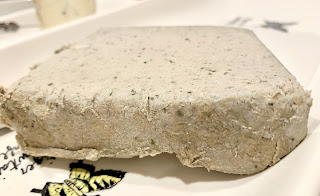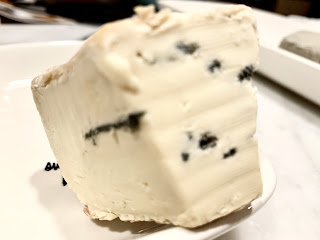It has been a heck of a year. For better or for worse, it is time to wrap it up. What better way than to finish 2021 with something sweet. Let’s talk about Sauternes (pronounced saw-turn in anglicized fashion or soh-tèrn in French).
Ask any wine connoisseur about Sauternes, and the prized Château d’Yquem (pronounced di-kim) comes to mind. Hailed from southern Bordeaux, Château d’Yquem is the sole wine that is designated Superior First Growth (or Premier Cru Supérieur) from the 1855 Bordeaux Wine Classification commissioned by Emperor Napoleon III. While the classification of red Bordeaux runs from first to fifth growths, the classification of white Bordeaux has only three tiers: Superior First, First, and Second.
What exactly is Sauternes?
Sauternes is a sweet white wine from the Bordeaux region of the same name. The grapes that make up Sauternes are predominantly Sémillon for lusciousness and Sauvignon Blanc for crisp acidity. A small amount of Muscadelle is sometimes blended in. What makes Sauternes special is the concentrated sweetness induced by noble rot.
Noble rot is caused by the beneficial fungus known as Botrytis cinerea. Under ideal weather conditions, the grey fungus infects ripe grapes in misty mornings, puncturing the skins. This then allows for water to evaporate from the grapes as the temperature rises in the afternoons. The succession of alternating moist and dry conditions concentrates the sugar content in the partially raisined grapes. Carefully handpicked, these grapes are then used to make intensely sweet wines, also known as botrytized wines. Other famous botrytized wines include the Hungarian Tokaji and the German Trockenbeerenauslese.
How to enjoy Sauternes?
Typically running north of $300 for a 750-ml bottle, Château d’Yquem is hardly your weeknight sweet wine. Thankfully, there are many high-quality Sauternes that do not break the bank and in which one can guiltlessly indulge. I snagged a half-bottle of 2011 Château Coutet for a mere $28. And with the Coravin wine preservation system, I can taste it over time as a little sweet wine goes a long way.
 |
| 2011 Château Coutet |
From the Barsac commune of Sauternes-Barsac appellation, Château Coutet is designated as a First Growth (or Premier Cru). A pale liquid gold with sexy viscosity, the Sauternes smells of honey and citrus fruit. The taste of honey extends to the palate with layers of marmalade, burnt caramel, and tart apple. It is luscious with bright acidity that lingers in the mouth.
While one may be tempted to only have Sauternes with dessert, the wine actually works really well with savory too. As an experiment, we decided to taste the Sauternes with two savories and two sweets. While they are all winners, here’s the order of our favorites.
#1 Foie Gras
Foie gras is considered the classic pairing for Sauternes, and I can now relate to that better with my palate than with my mind. It would seem that something as rich as foie gras would be too much for Sauternes, but it worked. The high acidity in the Sauternes makes for a nice counterbalance to the dish, while the herbal aromatics complement with it. It is our number one choice too.
 |
| Foie gras |
#2 Salted Caramel Panna Cotta
Creamy and light, the salted caramel panna cotta matches well with the sweet opulence and crisp acidity of Sauternes. I would have preferred to pick a fruit-based panna cotta, but it is winter and those are hard to come by. Still, this is our second favorite of the pairings as the salty caramel creaminess of the panna cotta blends with the luscious burnt caramel of the Sauternes.
 |
| Salted caramel panna cotta |
#3 Chocolate Truffles
I would have been content with Sauternes and chocolate truffles had I not been aware of other possibilties. Despite the contrary opinions of other more discerning palates, I actually enjoy Sauternes with creamy chocolate truffles, preferably dark rich ones with no other fillings. But it did land third place when compared to the other pairings, not that I would shy from it.
 |
Chocolate truffles
|
#4 Cambozola
I had expected this to be higher in the ranking as I love this creamy mild-flavored blue cheese. It is still good with Sauternes but lands at fourth place. Continuing with the theme of rich creamy food, the Cambozola matches with the Sauternes in its richness and is counterbalanced by the latter’s high acidity. The slight bitterness of the blue cheese also matches with the tinge of pithiness of the Sauternes. That said, I think I’m going to try pairing Sauternes with a sharper blue, like Roquefort or a Stilton, at another time.
 |
| Cambozola |
My Verdict: Sauternes and other botrytized wines are in some ways a miracle that rose from a place of rot. As we close out a tumultuous year that is 2021, let’s choose hope and possibilities as we navigate our own personal Botrytis. Perhaps the sweet ending of this year will lead to the sweet beginning of the next.











